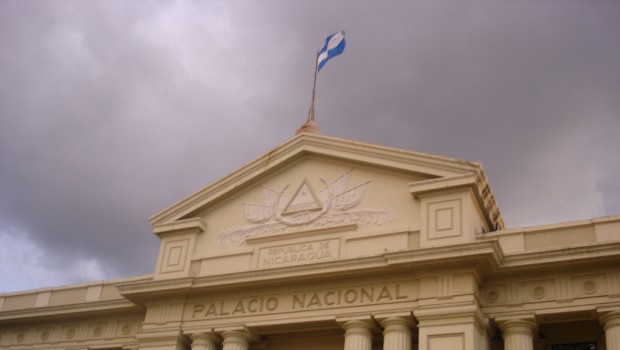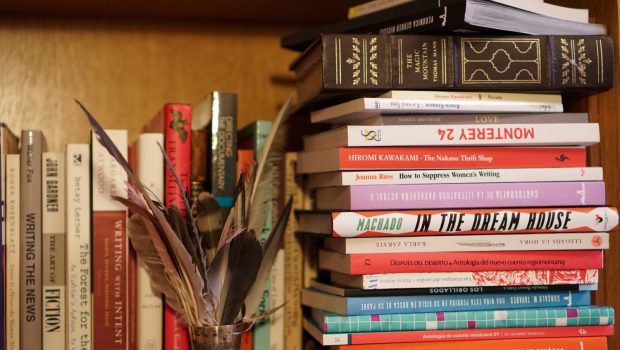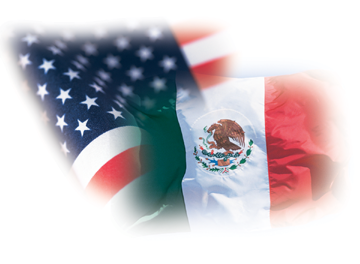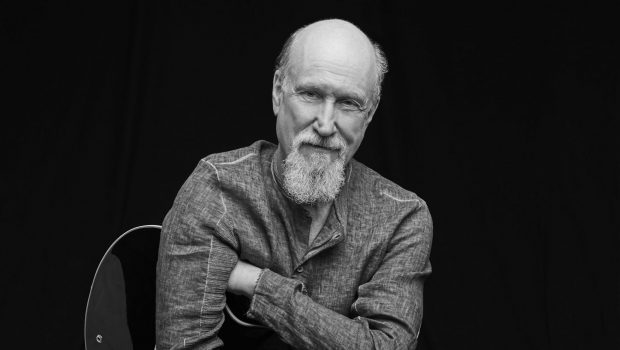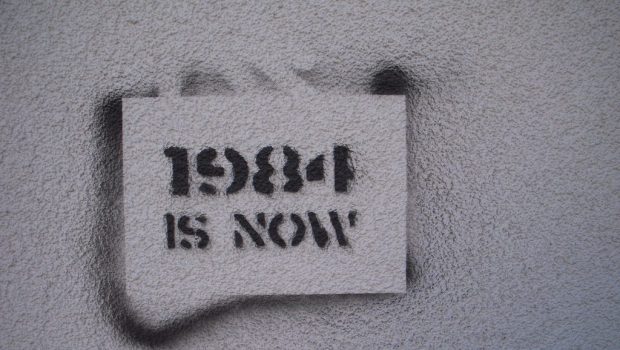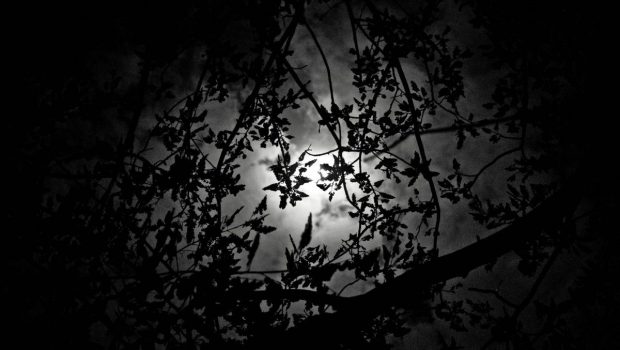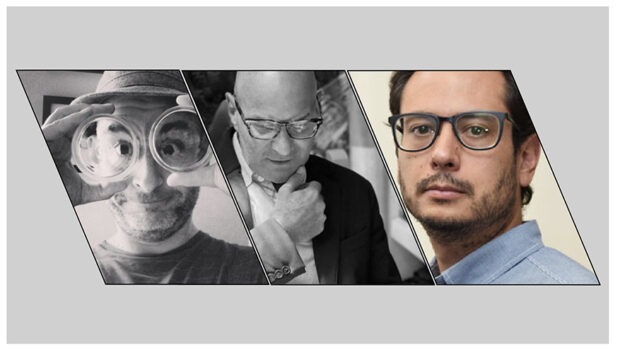The 21st Century Macondo
Michelle Roche
This year, South American literary cliques celebrate that half a century ago, Colombian Gabriel García Márquez published the book that made our culture popular in the rest of the world: One Hundred Years of Solitude. The novel chronicles the Buendía family’s struggle in Macondo, a fictional town where an unpredictably wild nature and a highly conservative society sabotage progress. Alfaguara, one of the biggest Spanish publishers, has made a commemorative re-edition of this classic. It is 600 hundred pages long and contains nine scholarly essays about its importance, the story edited by its author, a glossary of terms and a Buendía family tree. Every inch of it invites to be read. I accepted the invitation and was soon stunned to discover that its issues remain current.
This novel emulates today, as it did 50 years ago, the metaphorical and actual landscape of almost every settlement in the region and more importantly, the cyclic history of its inhabitants. I was confronted with the painful reality that every Latin American is an inhabitant of Macondo. It was excruciating to find out that we fit the stereotype of magical realism. The same way “orientalism” evokes the Middle East—with extremely stereotypical depictions of harems, belly dancers and pashas—magical realism evokes Latin America, a colorful region where people accept without questioning the logic of the unexpected and where the present is always a repetition of the past. Underneath the stereotype, however, Latin Americans celebrate the extraordinary as a soothing balsamic. And this is as true today as it was in the mid-1900s. An American writer was surprised when I told her that magical realism was a literary genre only for foreigners, because in my region the fantastic daily grotesque is a fact. I told her that, for example, in many towns around my native Venezuela, graveyards in cemeteries don’t have real but plastic flowers, because goats like to eat the only solace of the dead; that in some places of the wild Amazonian jungle plants grow overnight after you cut them; and, that every year, on October, the rainy season begins when a thunderbolt strikes over the Catatumbo, a river that flows into Lake Maracaibo.
The resemblance to magical realism, and to One Hundred Years of Solitude, is even more remarkable in affairs of state. In fact, the political equivalent of magical realism is Latin American socialism. This form of government has seduced the region’s politicians since the 20th century in the same way that liberalism allured men in every generation of the Buendía family.
When I re-read this book a few days ago, I was alternating it with daily Venezuelan newspapers and it was after I realized I had confused three Latin presidents with Macondo inhabitants, that I assumed I was mistaking the novel’s veracity with newspapers’ fiction. Such an exercise showed me how several leftist regimes are emerging in the region claiming to follow the example of Venezuela’s “21st century socialism,” an ambiguous political theory and a chimera because underneath its supposed new-fangled ideals lay the very old and conservative socialism. Like the liberals in Macondo, who after 20 years of war had forgotten the reason they were fighting for, the new socialism is just another vacant Latin American leftist ideology, a fancy way to market unattainable fantasies. There is no difference between the socialism of the 20th century and that of the 21st. Both sell the same dream: equality and wealth. And both have brought on a hopeless Latin American poverty.
And, where do these leftist governments find their inspiration? From Venezuela, the world’s fifth oil exporter and the region’s ultimate Banana Republic… a country ruled by an extravagant Buendía.
Hugo Chávez’s victory in the presidential election in Venezuela last December, reinvigorated his commitment to the so-called “21st century socialism”. He is a media superstar and the 21st century socialism is his international trademark; sadly, he evokes José Arcadio Buendía, the strong-willed family patriarch in García Márquez’s novel, “whose unbridled imagination always went beyond the genius of nature and even beyond miracles and magic, [and who] thought that it would be possible to make use of that useless invention [two metal ingots] to extract gold from the bowels of the earth.” Chávez’s metal ingots are his often-contradictory ideas about the old ideology, which he exposes in speeches around the world. As José Arcadio Buendía played the alchemist in his laboratory, Chávez plays the revolutionary on TV. (Yet, unlike José Arcadio Buendía, he was able to find gold: a black muddy gold, which translates into more than 13 billion dollars yearly in oil revenues.)
Although today’s socialism has been a reiterating idea of his almost ten year regime in the country, it became the international slogan of his revolution on January 30, 2005, during a speech to the 5th World Social Forum. There, he tried to distinguish the new century’s socialism from 20th century socialism, claiming that it was more pluralistic and less state-centered—or at least that it was different from the Soviet Union’s state socialism and Cuba’s communism. A year and a half later, during the Linking Alternatives II Conference in Vienna, Chávez vaguely defined this ideology as “based on solidarity, on fraternity, on love, on justice, on liberty, and on equality”. Presto, the scaffoldings for an inconsistent system of government were built. Everything in this new socialism is jargon. In a word-by- word analysis of his definition we see that there is nothing new about it:
1. Liberty, equality and fraternity: Although Chávez doesn’t use the words in this order, it’s clear that he refers to the 18th century’s French Revolution slogan. The French motto has fascinated Venezuelan politicians since the country’s independence from Spain. The phrase has become a historical cliché, and thus bears no real meaning in the speech.
2. Solidarity: The term alludes to Chávez’s Latin American foreign policy. Since 2005 Venezuela has promised about 5.5 billion dollars to socialist countries around the region in donations, loans and bond purchases. Solidarity isn’t a new strategy; Venezuela has always been supportive to other countries, because it has the privilege to be among the region’s richest lands. In fact, it was among the few countries standing at Argentina’s side in the 1982 Falklands War. Also, in 1986 during the Sandinistas crisis, this country met with Mexico, Colombia and Panama to prevent a war between Nicaragua and El Salvador. Today that solidarity sounds like cash: because Venezuelan riches reproduce at a fast rate, Chávez is able to support every leftist entrepreneur around the region; without realizing that it isn’t his speech what seduces them, but the sound Venezuelan money makes.
3. Love: The odd word choice of “love” is tacky and has no real meaning. How are we supposed to interpret such abstraction? It is evidence of Chávez’s assimilation of the liberation theology, an early 1970s Catholic leftist movement, which claimed poverty to be a “social sin” and capitalism a transgression. Although Chávez never points specifically to this movement, he has repeatedly declared that Jesus Christ is “the greatest socialist in history” and that his “Sermon on the Mount” is parallel with leftist ideals in the same terms the liberation theory’s priests have done it in the past. The idea of a Christian and socialist “love” is another populist bureaucratese, which is useful to allure masses in Venezuela, a country where more than 96 percent of the population has been baptized. However, it’s in conflict with Karl Marx’s Communist Manifesto—the left’s Bible, and a source repeatedly quoted by the president—where religion is called “the opium of the people”.
4. Justice: Social Justice has become the paramount ideal of Chávez’s government in Venezuela. In fact, his huge public funding of social initiatives is the main cause for his popularity in the country and in the rest of the region. Due to its strong oil revenues, the Venezuelan state is able to promote social programs in the country’s slums and shantytowns. But the Bolivarian Revolution—the ideological name Chávez’s followers give to his government—did not introduce the idea of social justice; it’s at the very core of socialism—a theory of social and economic organization, which advocates that the state, representing the community, should own and regulate the means of production, distribution and exchange in order to redistribute evenly the nation’s wealth. Don’t get me wrong, I do not condemn social programs, it’s socialism and its ideological use I despise.
Justice, equality and progress are not synonyms; yet they appear to be the same only in the Latin leftist jargon because these words are appeal to the masses. They are vacant ideals that build up to socialism, a diagnosis of the past and a vision of the future. But in this region where the past is collapsed into the present, ideologies like these are dangerous, because they don’t offer real solutions. Socialism is the endless repetition of dreams of development.
The 21st century socialism invokes welfare but fails to achieve development. In fact, the outcome of this new socialism has caused the slow dissolution of the country’s middle class. About 21.1 million Venezuelans (81 percent of the population) survive with 60 dollars a month. Social programs help them to stay alive, but fail to provide them with a dignified live. Claiming they are social justice, the Venezuelan state oil company spends a third of its earnings (more than 3.7 billion dollars) on social programs, which is laudable because no other government has done so before, but these oil-fueled social campaigns are band-aids to the country’s main problems: violence, unemployment and poor education. Any given week, newspapers present an account of about 32 gun-deaths in this country; two years ago the United Nations reported that about 47 people of every thousand are killed yearly with small arms. In addition, about half of Venezuela’s workforce operates in the informal economy, as buhoneros, or street vendors, who are not counted in the 14 percent of unemployment figures. In other words, about 60 percent of the population is either underemployed or have no job. So far, the trickiest problem is education: the National Institute of Statistics reports that 95.1 percent of Venezuelans are literate (thus, they can read and write), but high school dropouts are counted in millions. In sum, Venezuelans can read, but have no tools to interpret what they read. Meanwhile, those who want the benefits of the government’s social programs have to declare their loyalty to Chávez’s party. By promoting social justice and equality Chávez and his followers have restricted the freedom and responsibilities of the country’s poorest classes, claiming their supposed best interest. Venezuela’s State paternalism has made beggars of its citizens.
The country’s capital, Caracas, feels like the Macondo of the banana plantation years, because it has been divided in two: the rich and the poor. Like American settlers inhabiting the fictional town protected by electric barriers, upper class Venezuelans live in neighborhoods with fenced houses. In downtown Caracas, orphan children live and work in the streets where buhoneros sell phone calls, food and even sex, and where violence is rampant. Venezuela hasn’t achieved social equality but social division. And the only group making profit from this dichotomy between classes is the ruling political party. Chávez calls the 21st century socialism the revolution of the poor, but the only true revolution in Venezuela has been oil. Venezuela, like Macondo, is a country politically unstable; dependent on oil exports and ruled by a small leftist group… it’s a Banana Republic. But these riches have an expiration date. What will become of Venezuela after a rainy day, or four years of rainy days, like in Macondo? Let’s only hope that ideologies have an answer for that, because otherwise, like García Márquez’s fictional town, Venezuela could be wiped from the map by a giant windstorm.
Posted: April 10, 2012 at 6:10 pm



